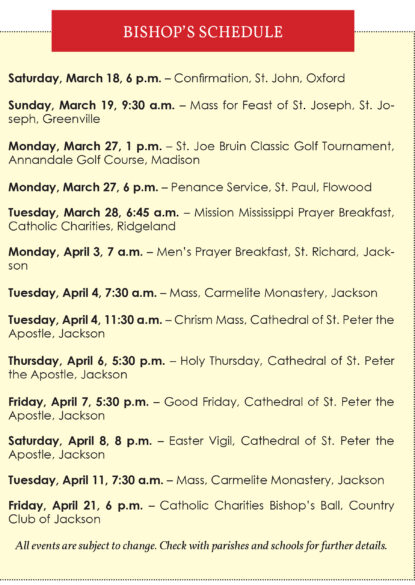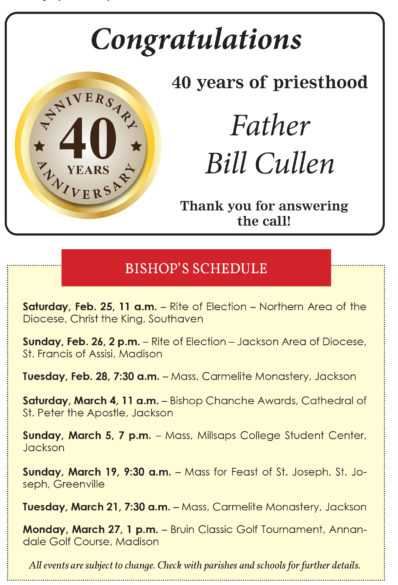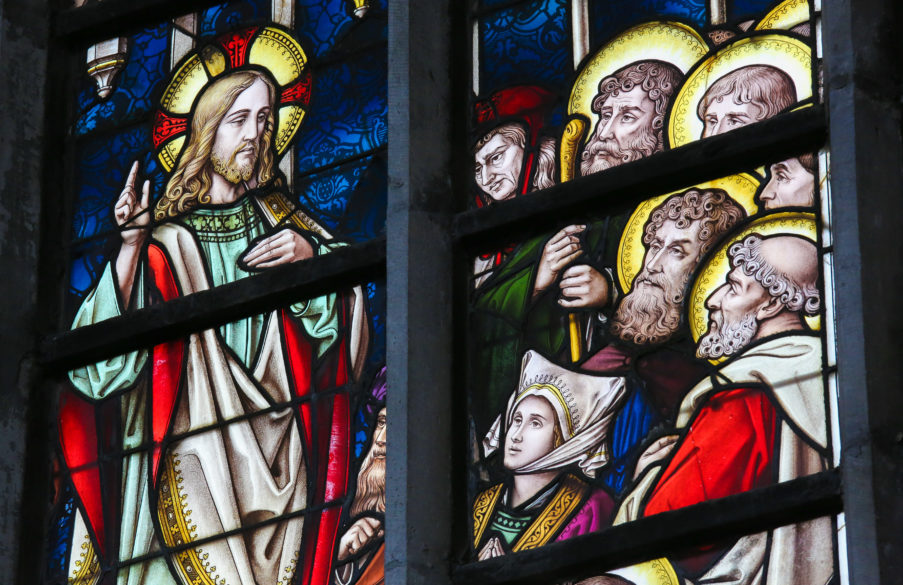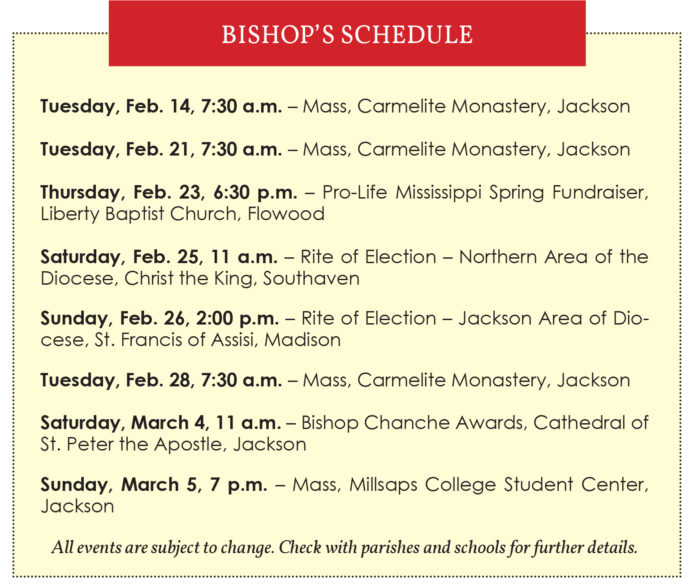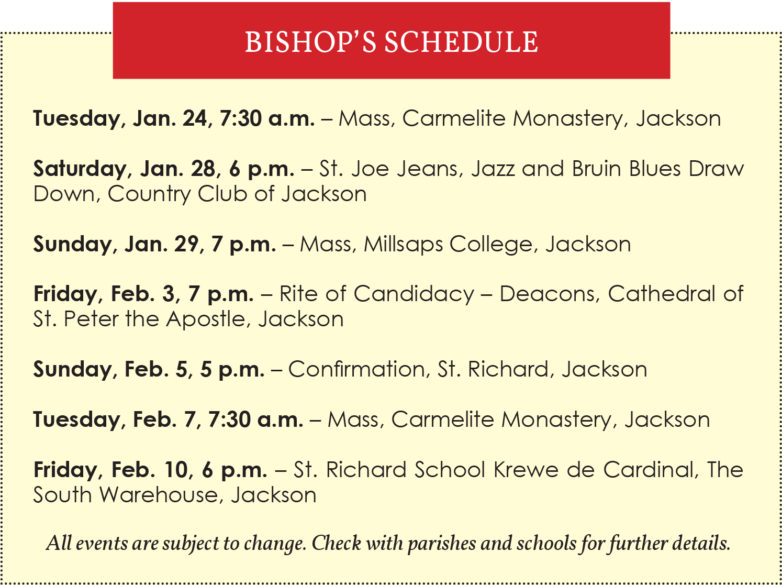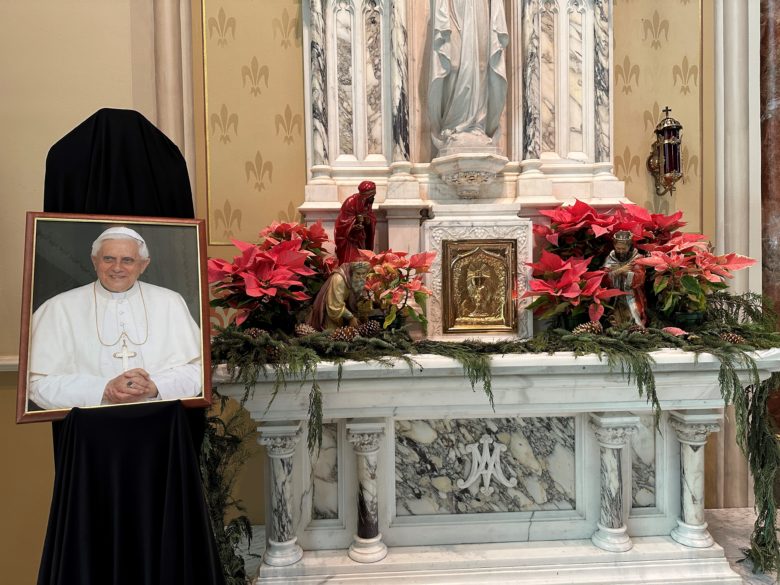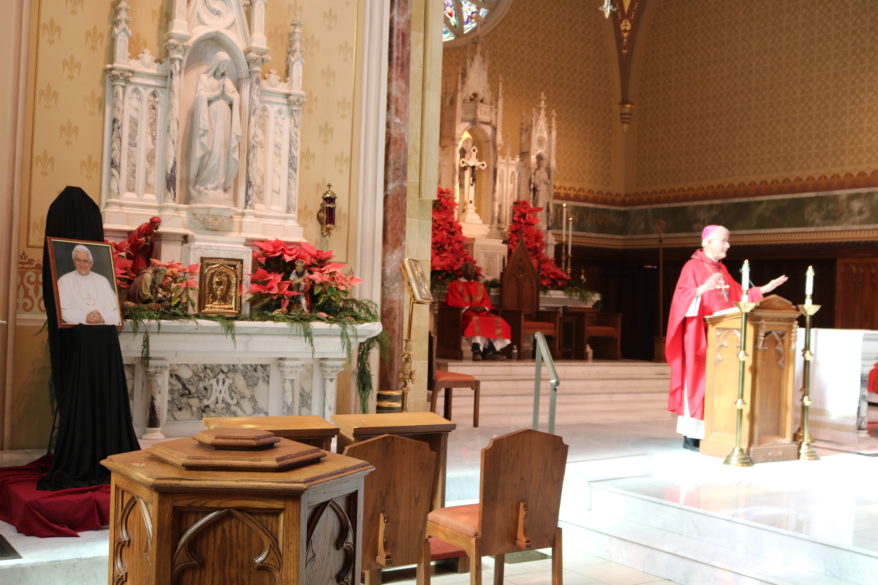By Bishop Joseph R. Kopacz, D.D.
The Transfiguration of the Lord was proclaimed from all Catholic pulpits throughout the world last weekend on the second Sunday of Lent, an event revealing God’s beloved Son as the fulfillment of the Law and the Prophets with the appearances of Moses and Elijah. For a brief moment Peter, James and John beheld the eternal glory of God on the Lord who was calling them out of darkness into his own marvelous light. (Matthew 17:1-9)
Earlier in the Gospel of Matthew Jesus made a bold statement during his Sermon on the Mount. “Do not think that I have come to abolish the Law and the Prophets. I have come not to abolish them, but to fulfill them.” (5:17)

There was a strong prophetic component to Moses’ leadership, but generally he represents the Law in ancient Israel. As soon as Israel settled down in the promised land with a king to rule over them the prophetic ministry arose to preserve and to demand fidelity to the Covenant established by God with Moses on Mount Sinai. Jesus shouldered all of this sacred history on the Cross to establish the new Covenant in his blood. From the Law, the church for nearly 2000 years has preserved the Ten Commandments as the template for the moral life of the Christian. Section three of the Catechism devotes considerable ink to this tradition.
From the prophets primarily, the church has developed its social teaching over the past 150 years with the dawn of the modern world. Its foundation is the dignity of the human person, made in the image and likeness of God. During the season of Lent the Lord and the church call us to double down on our prayer, fasting and almsgiving as obvious signs of our repentance. Jesus has taught us how to pray, fast and die to self, challenging enough, but sometimes the hidden essentials of our mission in the world is the work of social outreach and advocacy for life, justice and peace.
At the end of Matthew’s Gospel, Jesus portrayed the final judgment based on feeding the hungry, giving drink to the thirsty, clothing the naked, caring for the sick and visiting the imprisoned. This was the vision of the prophets in Israel for centuries. Listen to Isaiah, first among them.
“Why, when we fasted, did You not see? When we starved our bodies, did You pay no heed, O Lord? Because on your fast day you see to your business and oppress all your laborers! Because you fast in strife and contention, and you strike with a wicked fist! Your fasting today is not such as to make your voice heard on high. Is such the fast I desire, a day for men to starve their bodies? Is it bowing the head like a bulrush and lying in sackcloth and ashes? Do you call that a fast, a day when God is favorable? No, this is the fast I desire: To unlock the fetters of wickedness and untie the cords of the yoke to let the oppressed go free; to break off every yoke. It is to share your bread with the hungry, and to take the wretched poor into your home; when you see the naked, to clothe him, and not to ignore your own kin.” (Isaiah 58:3-7)
For example, “not to ignore your own kin” is the impetus for the grassroots efforts to expand post-partum Medicaid for women and their newborn beyond two months of coverage up to one year. To ignore this critical need after Dobbs vs. Jackson Women’s Health Organization is unconscionable. This is to say that the church’s pro-life and social teachings are always at work, in Mississippi, in the United States and throughout our world because the powerful voices of the prophets are part of our religious DNA.
“Let justice roll like a river, righteousness like an unfailing stream.” (Amos 5:24) “He has showed you, O man, what is good, and what does the Lord require of you but to do justice, to love kindness, and to walk humbly with your God.” (Micah 6:8) This is an essential part of the fulfillment of the Law and the Prophets of which Jesus spoke, and that God the Father revealed on the mountain of Transfiguration. “This is my beloved Son, with whom I am well pleased; listen to him.” He is the Way and the Truth in whom we have been baptized and seek faithfully to follow in thought, word and deed.
